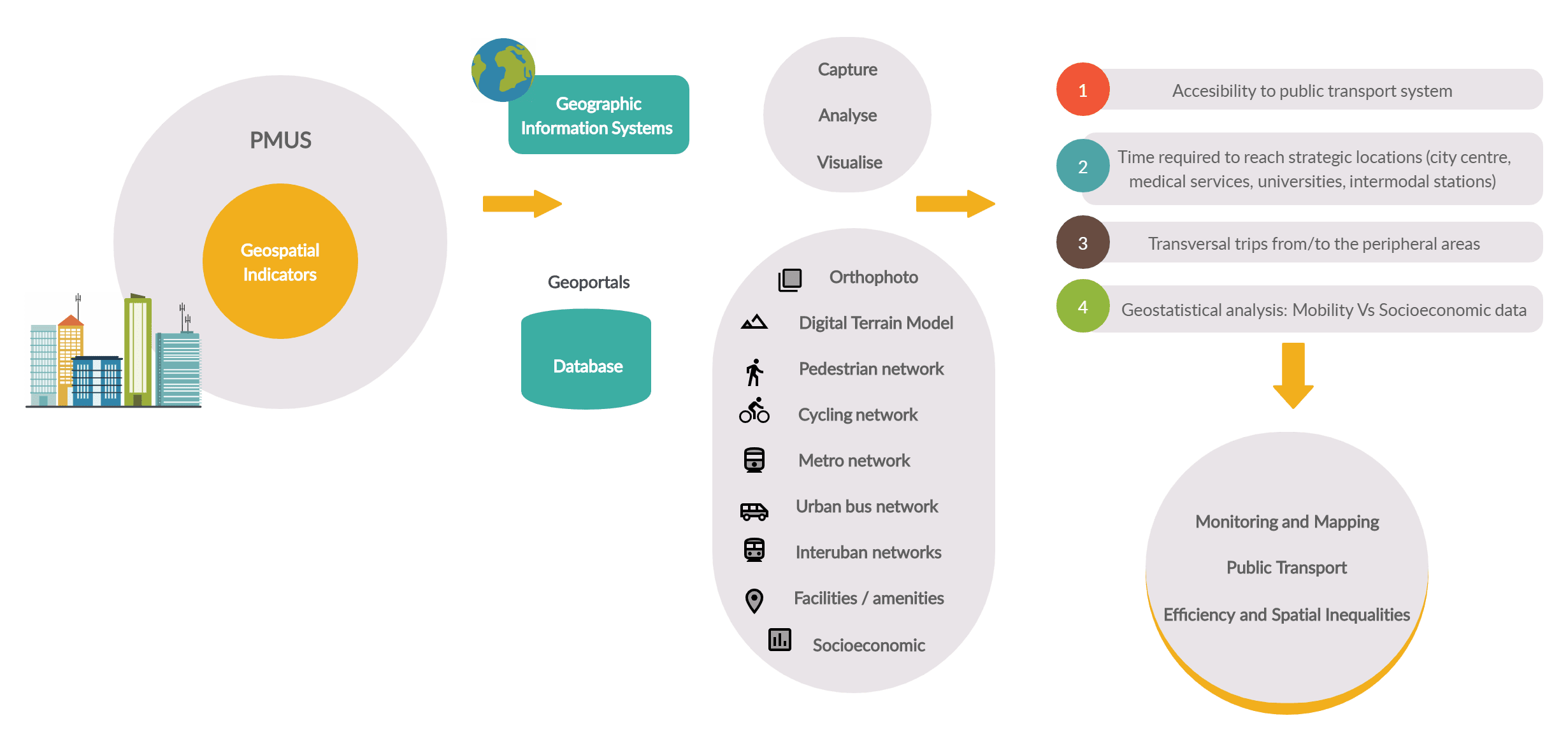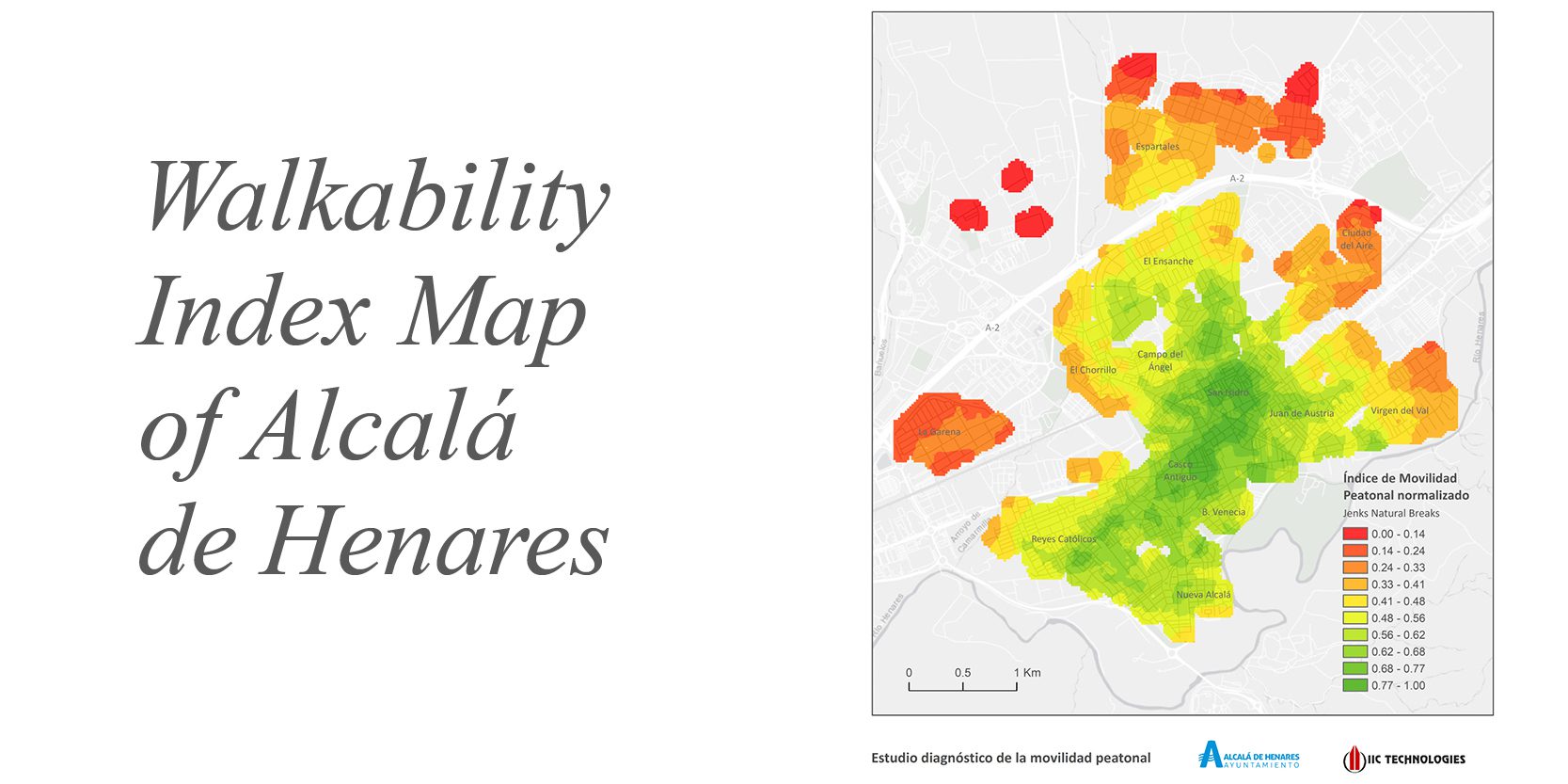Walkability Index Map of Alcalá de Henares
- WGIC partner(s): IIC Technologies
- City journey step(s): Implement, Monitor and Report
- Geospatial data type(s): Geographic information systems, Transportation and mobility
In the historic city of Alcalá de Henares (Madrid, Spain), a transformative project is underway to redefine urban mobility. The city’s Council launched an ambitious integrated sustainable urban mobility plan. Central to this effort is a pioneering diagnostic study of pedestrian mobility and walkability by IIC Technologies, utilizing cutting-edge GIS tools and open-source geospatial data. This initiative aims to promote sustainable transportation, enhance connectivity and territorial equity, and reduce car dependency. The GIS data analysis delves into critical factors such as proximity between residences and workplaces, essential amenities, public transport links, green spaces, land-use diversity, and connectivity. The outcome is a series of innovative maps and an Esri geodatabase, offering local authorities a powerful tool for guiding public investment and developing strategies to address the city’s mobility challenges. This project facilitates smarter decision-making and engages the community through visually appealing and informative maps, marking a significant step forward in urban planning.

In another study, IIC Technologies is performing research to develop GIS-based performance indicators for assessing Madrid’s public transport network. Despite sustainable mobility initiatives, pollution levels remain high, and the network lacks competitiveness for transversal trips. GIS will be used to analyze connectivity, optimal routes, and transport supply and demand scenarios. Utilizing open geospatial data, the research project will provide geospatial tools to monitor the sustainable urban mobility plan and guide initiatives for sustainable transport. The project aims to measure accessibility, evaluate transversal trips, and quantify time and distance to optimize transportation options. The study expects the outcomes will enhance monitoring, evaluation, modeling, and public participation in mobility policies, promoting sustainable and equitable urban transport.


